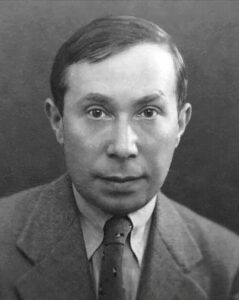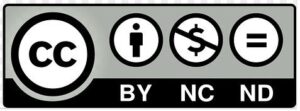Sobre Apología y Critón Strūthiō 006
Parte de:
«Sobre la Apología de Sócrates y el Critón de Platón» / I

Leōnardus Strūthiō (1899-1973)
ĒRVDĪTIŌRIBVS ***
Tabla de contenidos
Versiō hispānica Aemiliā Aquadītī auctrīce 6
Sócrates considera que el dios ha dicho que él, Sócrates, es el más sabio. Como es natural, cree en la veracidad del dios, por no hablar de su conocimiento o su sabiduría. Por otra parte, está seguro de que él, Sócrates, no es en modo alguno sabio. Para resolver el acertijo, emprende cierto tipo de indagación. Examina a las personas que él u otros consideran sabias. Al examinarlas, también examina, sin duda, al dios: trata de refutar al oráculo. Descubre que, si bien las personas a las que interroga creen poseer conocimiento, en realidad carecen de él, mientras que Sócrates no creyó ni cree saber nada digno de mención sobre las cosas más importantes. De este modo llega a ver la verdad del oráculo: su intento de refutar al dios se convierte en ayuda al dios y un sincero servicio a él. Sócrates examina a los políticos, a los poetas, cuya «sabiduría» no parece ser diferente de la de los profetas y de quienes profieren oráculos, y a los artesanos. No dice en forma explícita que ha examinado a los agricultores (quizá estos no pretenden ser sabios; cf. Jenofonte, Económico, 15), a los caballeros que se ocupan de sus propios asuntos, o a los sofistas (y los fisiólogos). Su examen de los hombres considerados sabios, y en especial de los políticos, lleva a estos a odiarlo intensamente, y esa inquina está en el fondo de la calumnia a la que ha estado expuesto durante largo tiempo. La gente lo llama sabio de manera calumniosa, porque quienes presenciaron su examen de los llamados o supuestos sabios creían en su sabiduría respecto de las cosas muy importantes sobre las cuales examinaba a los demás. Pero esto es un total malentendido: Sócrates sólo es sabio en el sentido de que sabe que nada sabe. Y este es el significado del enigmático oráculo relativo a él: la sabiduría humana tiene poca o ninguna importancia, mas el ser humano que la posea, como Sócrates, es el mayor de los sabios. El dios muestra que él mismo, el dios, es verdaderamente sabio, al insinuar la verdad acerca del valor o, más bien, la falta de valor de la sabiduría humana y su contenido puramente negativo.
La animosidad contra Sócrates se agravó y tuvo oportunidad de ventilarse porque los jóvenes que lo acompañaban disfrutaban al escuchar su examen de los seres humanos e incluso solían imitarlo. Entonces, los así examinados se encolerizaron contra él, no contra ellos, y dijeron que Sócrates corrompía a los jóvenes. (A la luz del hecho de que lo particularmente agravante era lo que hacían los jóvenes seguidores de Sócrates, y que se dedicaran a su irritante pasatiempo en ausencia de este, es comprensible que Sócrates ni siquiera conociera los nombres de los primeros acusadores, aunque sí, al menos, los de algunos de los examinados por él mismo; cf. 18c8-d1 con 21c3). Como es obvio que esta calumnia no basta, afirman que corrompe a los jóvenes al hacer y enseñar las cosas por las cuales de ordinario se censura a todos los que filosofan, a saber, «las cosas de lo alto y de abajo de la tierra», «no creer en los dioses» y «hacer del discurso más débil el más fuerte». La «no creencia en los dioses» había sido presentada anteriormente por Sócrates como una inferencia de quienes escuchaban a los primeros acusadores y, por lo tanto, estaba aún menos confirmada por pruebas que las otras dos acusaciones. Pero Sócrates hizo esto antes de hablar del oráculo de Delfos. Mientras tanto, ha mostrado que toda la sabiduría que posee es producto de ese oráculo, es decir, que no hay una sabiduría predélfica y, por consiguiente, ya no es necesario distinguir entre physiologia y ateísmo. En otras palabras, ha demostrado que la acusación primaria se relaciona con la corrupción de los jóvenes y que los otros tres cargos son pura invención, concebidos para dar alguna verosimilitud a la acusación de corrupción; en consecuencia, ya no hay necesidad alguna de asignar una jerarquía diferente a la acusación de impiedad, por una parte, y a las dos restantes, por la otra. Sócrates ha demostrado también que no sólo es odiado por aquellos a quienes refuta, sino también por muchos de los que están presentes en la refutación (21d1; cf. 23a4), pues los oyentes creen, al igual que los examinados por él, conocer la verdad acerca de las cosas más importantes; la distinción entre los primeros acusadores y los oyentes se desvanece: prácticamente todos los atenienses son los primeros acusadores. Y los acusadores actuales son meros portavoces de los llamados primeros acusadores (24b7).
Perge ad initium paginae huius
Leōnardī Strūthiōnis verba 6
Socrates understood the god to have said that Socrates is most wise. He naturally believed in the god’s veracity, to say nothing of his knowledge, or wisdom. On the other hand he was sure that he, Socrates, was not at all wise. To solve the riddle he engaged in a certain kind of inquiry. He examined the people thought by him or by others to be wise. In examining them he examined indeed also the god: he tried to refute the oracle. He found out that while the people questioned by him believed that they possessed knowledge, they lacked it, whereas Socrates did and does not believe that he knows anything worthwhile of the most important things. He thus came to see the truth of the oracle: his attempt to refute the god turned into assistance to the god and whole-hearted service to him. Socrates examined the politicians, the poets whose “wisdom” does not appear to be different from that of the prophets and of those who delivered oracles, and the craftsmen. He does not say explicitly that he examined the farmers (perhaps farmers did not claim to be wise—cf. Xenophon, Oeconomicus 15), the gentlemen who mind their own business, or the sophists (and physiologists). His examination of the men believed to be wise, and especially of the politicians, aroused very deep hatred of him, and that hatred is at the bottom of the slander to which he has been exposed for a long time. People slanderously call him wise because those present at his examination of the so-called or would-be wise believed that he was wise regarding the most important things regarding which he examines the others. But this is a complete misunderstanding: Socrates is wise only in the sense that he knows that he knows nothing. And this is the meaning of the enigmatic oracle regarding Socrates: human wisdom is of little or no account, but a human being who possesses it, as Socrates does, is most wise. The god shows that he, the god, is truly wise by hinting at the truth about the worth or rather worthlessness of human wisdom and its purely negative content.
The animosity against Socrates was aggravated and acquired an opportunity to vent itself because the young men who accompany him enjoy listening to his examination of human beings and even frequently imitate him. Thereupon those examined by the young are angry at Socrates, not at themselves, and say that Socrates corrupts the young. (In the light of the facts that what was particularly aggravating was what Socrates’ young followers did and that they engaged in their irritating pastime in his absence, it is understandable that he does not even know the names of the first accusers, although he knows the names of at least some whom he himself examined; cf. 18c8-d1 with 21c3.) Since this slander is obviously not sufficient, they say that he corrupts the young by doing and teaching the things for which all who philosophize are commonly blamed, namely, “the things aloft and beneath the earth,” “not believing in gods” and “rendering the weaker speech the stronger.” “Not believing in gods” had previously been presented by Socrates as an inference on the part of those who listen to the first accusers and therefore as even less borne out by evidence than the two other charges. But this he did before speaking of the Delphic oracle. In the meantime he has shown that whatever wisdom he possesses was elicited by the Delphic oracle, i.e., that there was no pre-Delphic wisdom and hence there is no need any more for distinguishing between physiologia and atheism. In other words, he has shown that the primary charge concerns his corruption of the young and that the other three charges are pure inventions thought out in order to give some plausibility to the corruption charge; hence there is no longer any need for assigning a different status to the impiety charge on the one hand and the other two charges on the other. Socrates has also shown that he is hated not only by those whom he refutes but also by many of those who are present at the refutation (21d1; cf. 23a4); for the listeners believe that they know the truth about the most important things no less than those whom he examines; the distinction between the first accusers and the listeners breaks down: practically all Athenians are the first accusers. And the present accusers are merely the spokesmen for the so-called first accusers (24b7).
Perge ad initium paginae huius
Iūra
El texto en lengua inglesa fue publicado de manera póstuma en un volumen en honor al prof. Jacob Klein: Essais in Honor of Jacob Klein (Annapolī, ē Typographeō Acadēmīae Sānctī Iōhannis MCMLXXVI). Aunque nosotros tomamos como base lo aparecido en una antología dedicada a escritos del prof. Strūthiō en inglés en 1983: Studies in Platonic Political Philosophy (Sicagī, ē Typographeō Ūniversitātis Sicagī MCMLXXXIII). La versión castellana es obra de Aemilia Aquadīs, aparecida en la traducción del volumen mencionado anteriormente (Bonāeropolī, ē Typographeō Amōrrortī MMVIII). La publicación de estos fragmentos promueve la difusión en castellano de la obra del profesor Leōnardus Strūthiō con fines académicos y de formación. Conminamos a visitar su biblioteca más cercana o adquirir el volumen físico en su librería de confianza.

Perge ad initium paginae huius
ĒRVDĪTIŌRIBVS ***
